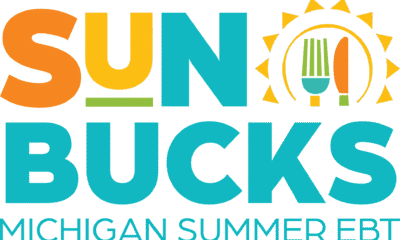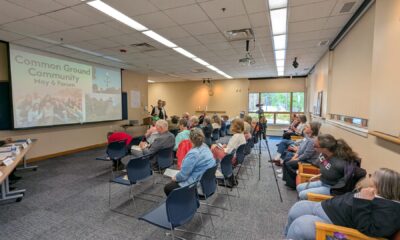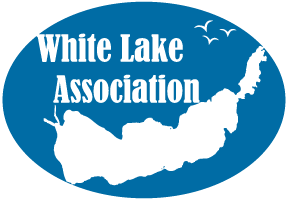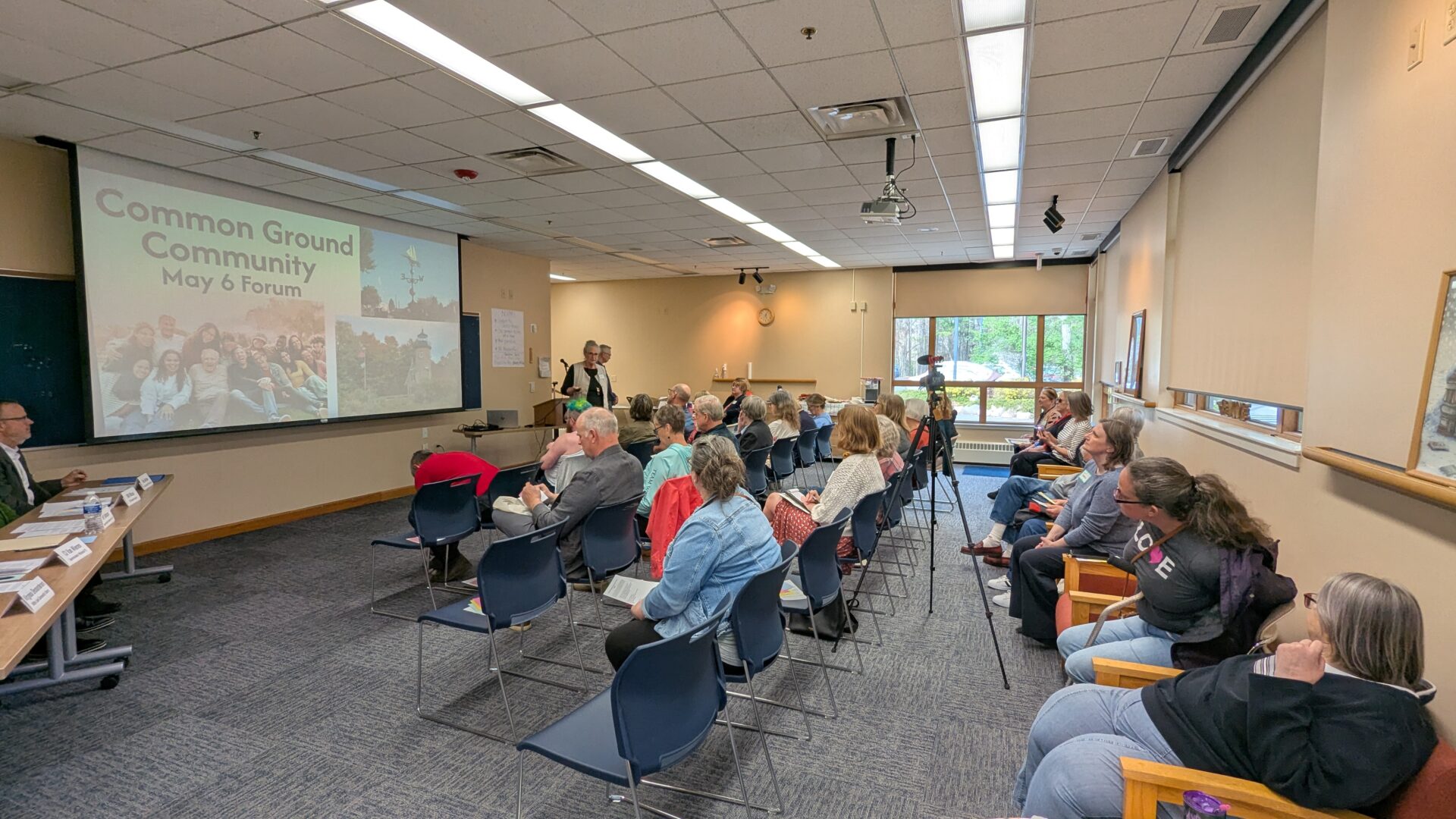
Common Ground Community Forum Highlights Community Efforts and Funding Concerns
White Lake, Mich. — Community members gathered at the White Lake Community Library on May 6 for the Common Ground Community Forum, a public event focused on addressing local challenges and the impact of state and federal funding on key services.
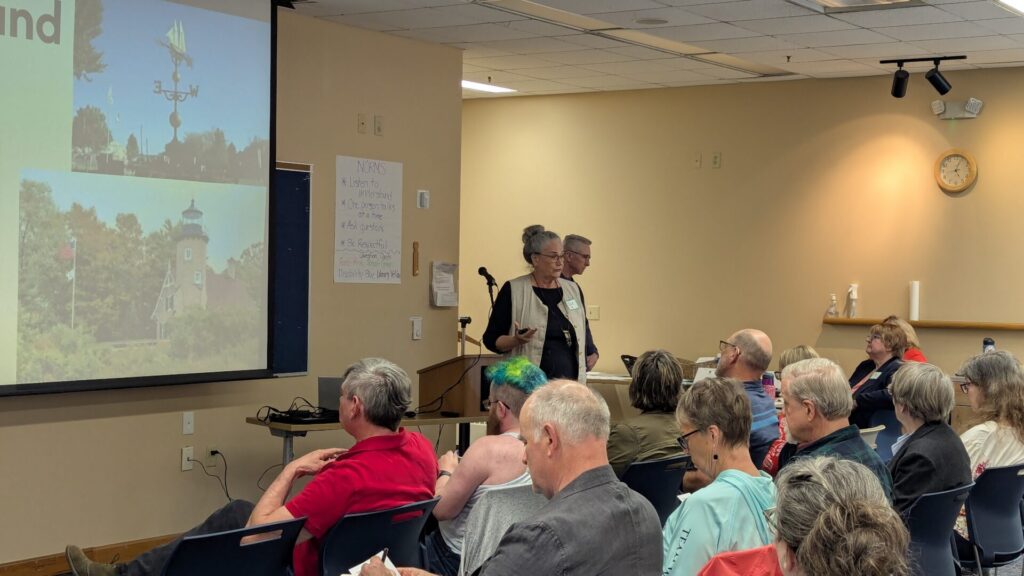
The evening opened with Sue Mack of Common Ground Community welcoming attendees and sharing the group’s mission: to bridge divisions within the White Lake area by providing factual, reliable information. Mack explained that Common Ground formed from residents concerned about misinformation and its effects on the community, and the group’s goal is to deliver clear, unbiased updates on issues impacting local life.
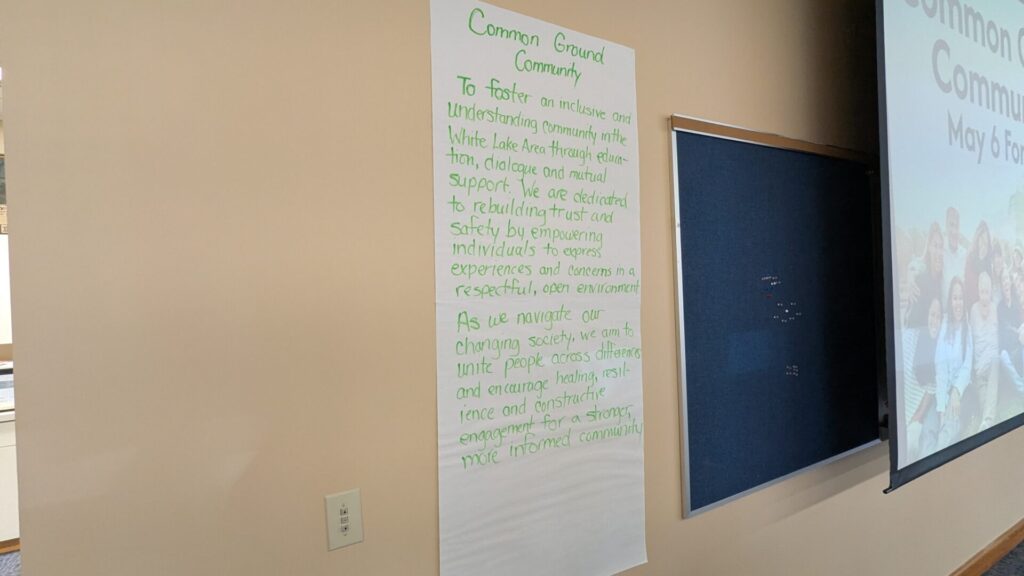
“We really need to start getting people the right information,” Mack emphasized. She invited anyone interested in joining the group to sign up on the evening’s attendance sheet or survey forms.
Listening to Understand
Norm Kittleson, a longtime local resident and community leader, served as moderator. He outlined the forum’s ground rules: listen with an open mind, ask questions, and maintain respect during discussions. “If you don’t understand something, that’s what the questions are for,” he encouraged.
The forum featured speakers from local organizations who addressed how funding shifts and potential cuts affect their services:
School Meals: Feeding Minds and Futures
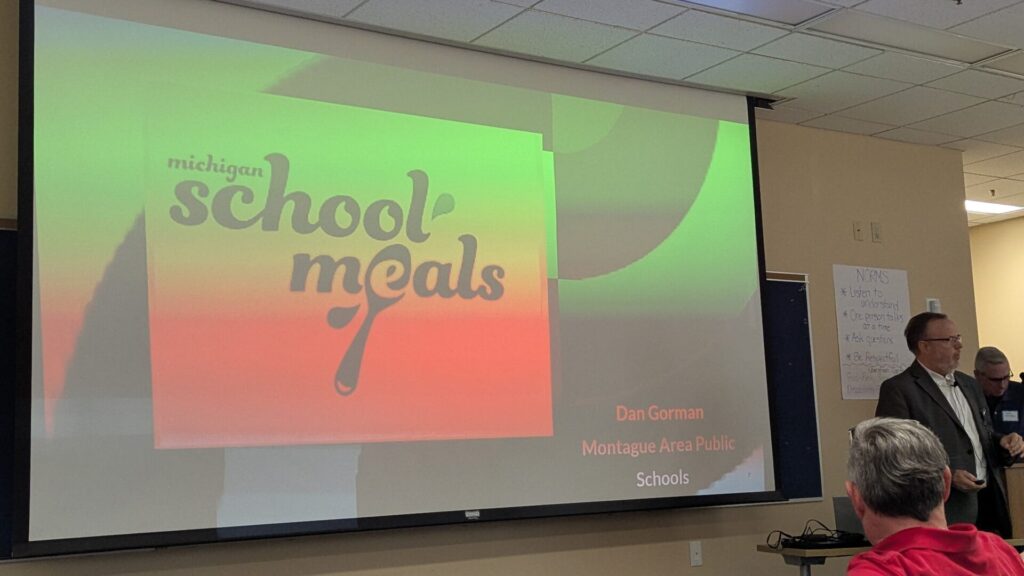
Dan Gorman, Director of Food Services for Montague Area Public Schools and North Muskegon Public Schools, underscored the importance of school meals, noting that food insecurity in Muskegon County is double the statewide average.
“Students can’t succeed if they’re hungry,” Gorman said. He praised Michigan’s “free meals for all” program, which helps eliminate stigma and ensures every student receives nutritious meals.
Gorman highlighted that funding cuts could impact food quality, fresh produce availability, and innovative programs like the summer meal distributions and the “10 Cents a Meal” initiative, which supports local farms. He urged community members to advocate with legislators to maintain and expand these critical programs.
Disability Services: Meeting Needs Across Five Counties
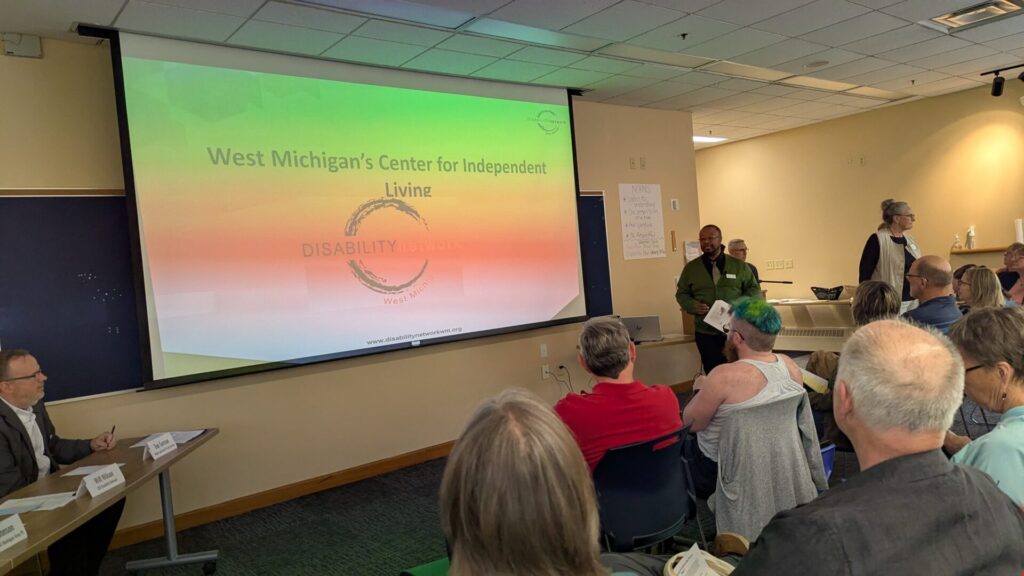
Will Wilson, CEO of Disability Network West Michigan, explained how his organization serves individuals with disabilities across Muskegon, Newaygo, Oceana, Mason, and Lake counties.
Wilson outlined the group’s core services, including peer support, independent living skills, advocacy, and nursing home transitions.
While the Disability Network hasn’t seen direct cuts yet, Wilson noted that reductions in Medicaid or other federal programs will inevitably increase local demand. “If our consumers are affected by cuts, it impacts how we deliver services,” Wilson said.
He stressed the importance of contacting legislators, sharing personal stories, and supporting local agencies through volunteering and donations.
Local Schools: Navigating an Uncertain Funding Landscape
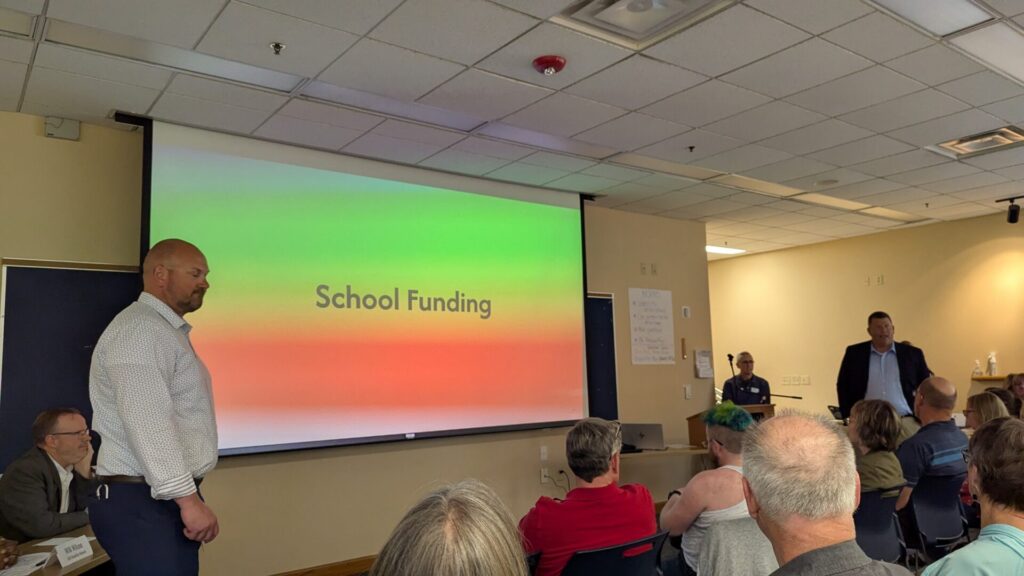
Jeff Johnson, Superintendent of Montague Area Public Schools, and CJ VanWarren, Superintendent of Whitehall District Schools, provided a snapshot of how schools are funded and what’s at risk.
Most school funding comes from state dollars, local property taxes, and federal grants. While federal funds make up only about 3% of Montague’s budget, they support essential programs like special education and Title I services.
The superintendents warned that potential federal cuts could trickle down to classrooms, while local millage and bond approvals remain crucial for school operations and facility improvements.
Both urged residents to advocate for the full funding of the Individuals with Disabilities Education Act (IDEA), which the federal government has historically underfunded. “Special education has been shortchanged for decades,” one speaker noted.
Library Funding: Local Roots, Federal Reach
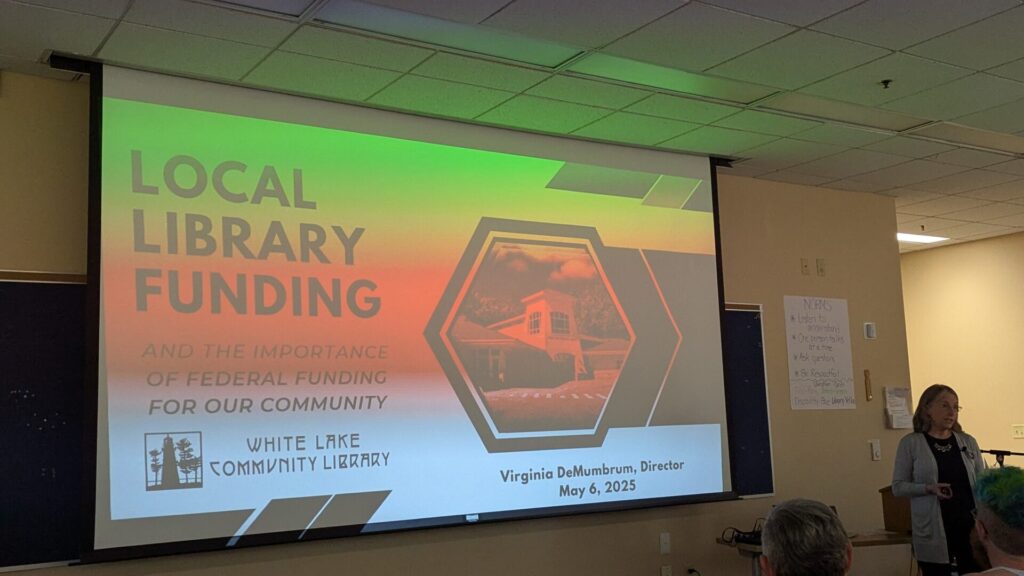
Virginia DeMumbrum, Director of White Lake Community Library, shared a history of the library and its funding model. While the library relies primarily on local millages, federal funds—channeled through the Institute of Museum and Library Services—support critical services like interlibrary loans, digital resources, and staff training.
DeMumbrum emphasized that despite potential federal cuts, “we’re not going anywhere,” though services like statewide borrowing systems and early literacy programs could be affected.
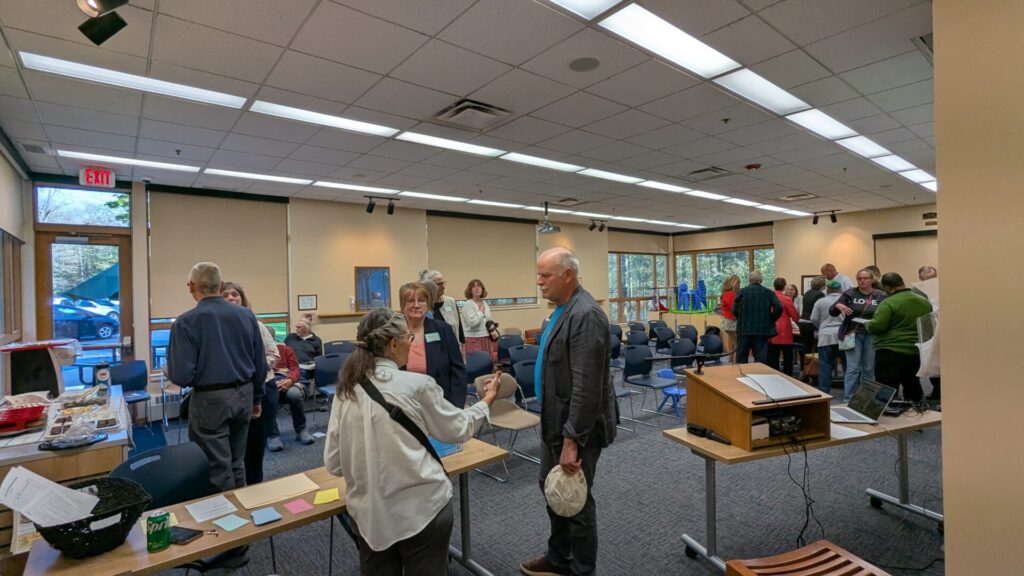
A Call for Community Action
The forum wrapped up with a call for community members to stay engaged, advocate for sustained funding, and support local agencies and schools.
Kittleson summed up the evening’s spirit: “If we want to be part of a community, it’s important that we support the institutions that help support us.”
Common Ground Community plans to host additional forums and encourages residents to stay informed, get involved, and speak up for the services that shape the White Lake area.
Stay tuned to CatchMark Community for ongoing local updates and community reminders!
Amy Yonkman is the Product Lead for the CatchMark Community platform, bringing extensive experience in project management, WordPress administration, and digital content creation. She excels at coordinating projects, supporting cross-functional teams, and delivering engaging digital experiences. Amy is skilled in content strategy, workflow optimization, and multimedia editing across web and social platforms. With a strong background in task organization, technical writing, and customer service, she plays a key role in driving the growth and impact of CatchMark’s community-focused digital initiatives.
Must See
-


Community
/ 25 minutes agoSummer EBT Helps Michigan Families Feed Kids
White Lake, Mich. — Michigan families have extra help this summer making sure their...
By Amy Yonkman -


Community
/ 3 hours agoCommon Ground Unites White Lake on Funding Challenges
Common Ground Community Forum Highlights Community Efforts and Funding Concerns White Lake, Mich. —...
By Amy Yonkman -


Community
/ 1 day agoPress Release: White Lake Association Smart Buoy Launch
Gone is the day that the No. 1 job of a buoy is to...
By Amy Yonkman
